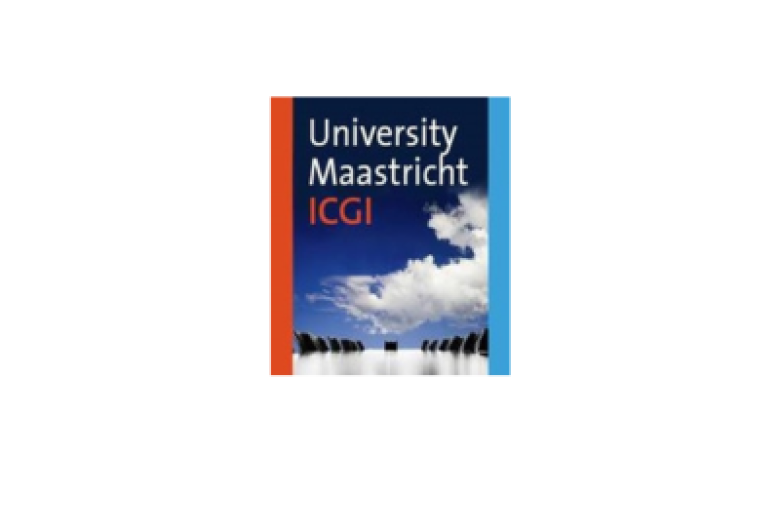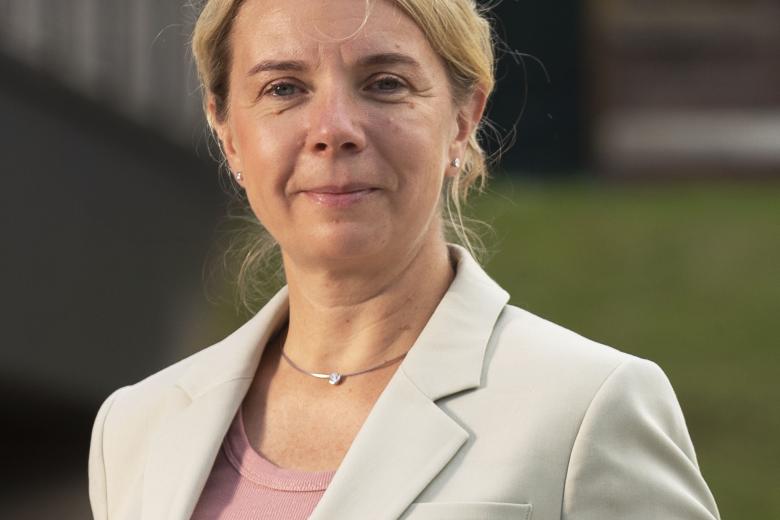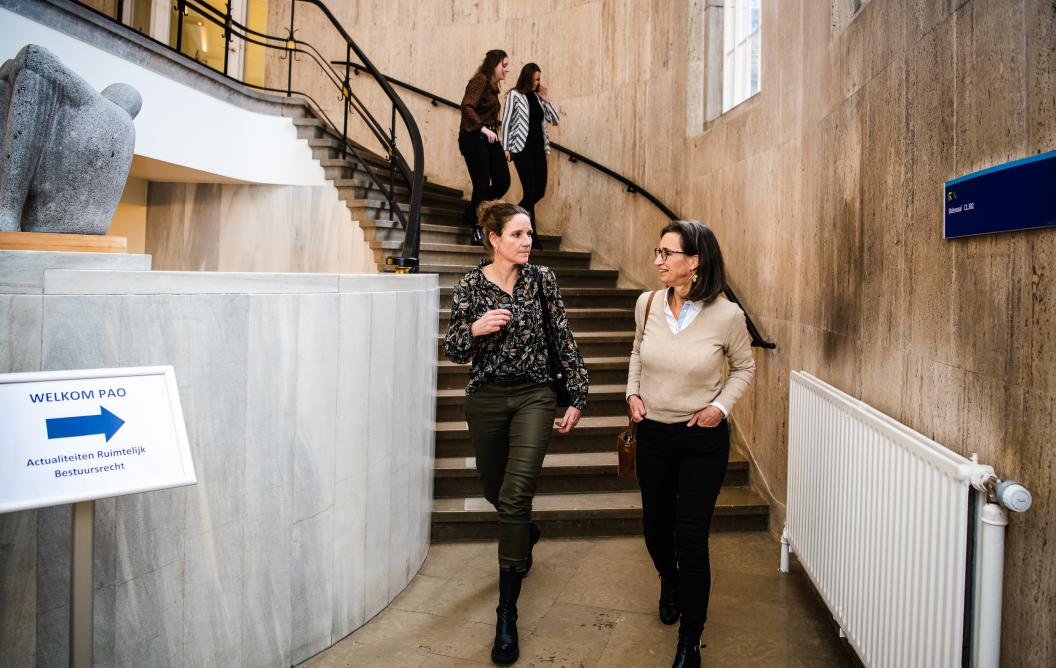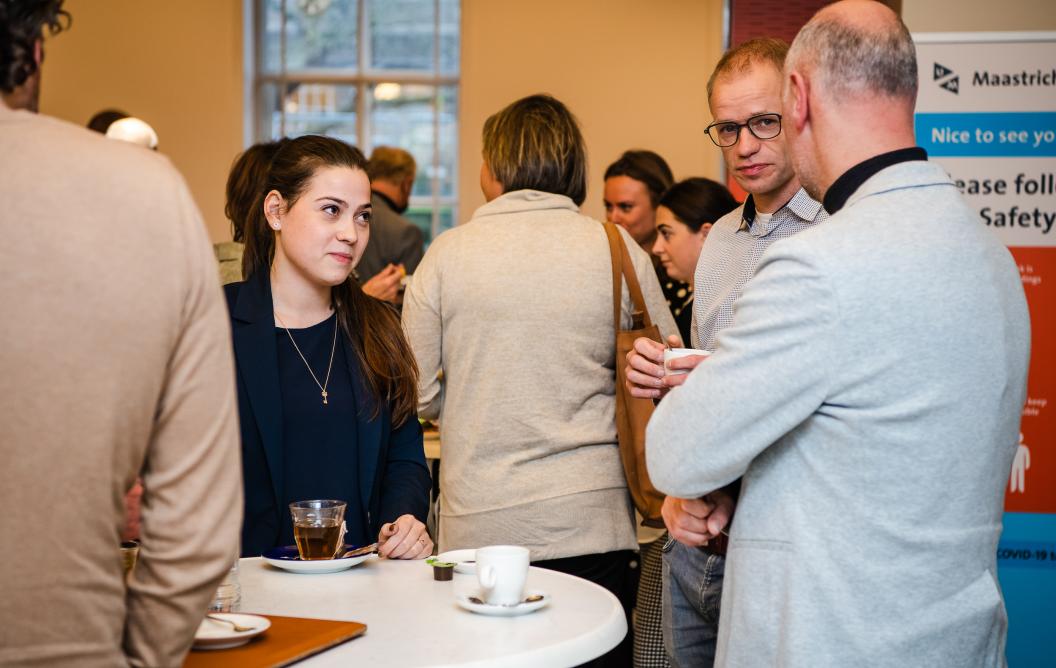What’s Next for LAW.next? New wind for post-academic education
The UM Faculty of Law’s post-academic education has been high-level for years, but we can always do better. The corona pandemic was a catalyst for new initiatives to be launched. We had to make changes. Not only practical but also in terms of content. One of our ambitions? To showcase the international attraction of the university through post-academic education.
“The full experience we offer, has always been our way to distinguish ourselves. People come to Maastricht for the friendly atmosphere and charm of the city, the quality of life, and our education - top-notch courses with a personal touch”, says Ellen Essers. A year and a half ago, she joined the Bureau for Post-academic Education as education manager for the Faculty of Law.
Koen Savrij Droste, chair of the Post-academic education commission (PO commission), works closely with Ellen: “During the pandemic, we had to switch to online education. A number of big players on the market suddenly become competition. It was time to reassess our strategy and seize opportunities.” The quest for the essence of post-academic law education in Maastricht and what it should be, started off with many challenges.
To this day, we’re working hard on the future of education. “Our courses carried on throughout the pandemic. While facing practical challenges, we started to rediscover our focus and the direction for our education moving forward, and we started expanding our offer”, says Ellen.
Focus on Euregion
The University of Maastricht and the Faculty of Law focus on the EU region. That’s why our post-academic education also needs to reflect this. Ellen: “Our name, Bureau for Post-academic Education, required a different and more international touch. We found that in LAW.next.”
The team professionalized the website too. All post-academic initiatives at our faculty are presented there under the same flag. “We also made sure we facilitate a face-to-face, hybrid and on-demand programme, here on campus and in Brussels. Lastly, we are researching in-company possibilities”, says Ellen.
Being part of a European network university with both a national and an international focus, LAW.next wants to provide and expand its services for a life of learning. “Aimed at the needs of the region, the Netherlands, Europe, and the rest of the world. This is how we want to share knowledge with the national and regional market and provide a valuable contribution.”
International collaborations
A result of this new approach, for example, is the collaboration between the Maastricht Faculty of Law and the Centre for Commercial Law Studies of Queen Mary University in London. Together, they’re developing an executive education module to provide insights into trade law. Ellen: “The programme caters to the needs of those who practice law and policymakers in the European trade law ecosystem. It’s very practical as well. The teachers are often lawyers, policymakers judges, law consultants or advisors or advisors of companies, government bodies and law offices. They use examples of everyday practices in their teaching.”
The programme offers courses on trade law and trade practice, such as FinTech, commercial property rights, questions on fiscal law, and energy law. “The first course, Trade Secret Protection and Technology Transfer, takes place in May. It is offered – like subsequent courses – at our Maastricht University Campus in Brussels,” says Ellen.

The University of Maastricht and the Faculty of Law focus on the EU region. That’s why our post-academic education also needs to reflect this.
New courses, soft skills, and collaborations
As a member of the PO commission, assistant professor Elles Ramakes knows both the target audience and the programmes. She helps develop new courses. Elles has noticed a growing interest in more than just law skills: “By connecting science and practice in an international context, ideas for future courses arise. We see lawyers combine in-depth knowledge of the law with general knowledge or soft skills, like mediation or arbitration. From the private sector we receive a lot of interest in alternatives to ‘the battle in court’. This means we have to look for lapses in our curriculum which we can then fill in.”
Elles organizes, amongst other things, peer groups in post-academic education. “What we offer is of high quality in terms of law education, but we are also considering other aspects as well now. In terms of 21st-century skills, there is a lot to be done in post-academic education.” Koen adds: “Soft skills, IT skills, psychology, and communication play an increasingly important role in the life of ‘the lawyer’. This has to be integrated into our education. At the same time, we raise awareness in the market for future challenges. This makes it worth the effort.”
What’s Next for LAW.next?
The first successes are a fact: in 2021, LAW.next helped 22 per cent more law professionals than the previous year. “The past few months have been about further growth, by taking concrete steps in line with our mission. We built a solid foundation, from which we are ready to work on LAW.next’s ambitions for the future. By professionalizing, maintaining a clear profile, expanding our international programme, and keeping close connections with internal and external partners in ‘a life of learning’, there’s room for future growth,” says Ellen. “We’re making sure we are a strong knowledge partner. For the local and regional labour market, as well as for the international market.”
Ellis is also optimistic about the future of post-academic education in Maastricht. “The quality of our speakers is high, there are great ideas – which I will keep to myself for now – and we are open to growth. Of course, there’s a lot to be done, but we will!” Koen concludes: “It’s amazing that the University wants to invest in professionalization and post-academic education.”
The personal approach, exclusive service, and high-quality education have been praised before. The flexible courses on offer and innovative teaching methods with international partners add to that list. The faculty hopes to challenge students to ‘a life of learning’ this way.
By: Letterdesk (text), Jonathan Vos (photography).
| Return to lawreview2021 |

We built a solid foundation, from which we are ready to work on LAW.next’s ambitions for the future.
Also read
-
Harm Askes: “Helping people excel, no need for showmanship.”
Harm Askes, the new vice-dean of FSE “Let’s continue building a faculty where talent shines: no ego, just impact, collaboration, and curiosity."

-
Roundtable on Reflection Period
ICGI and the Elverding Chair organise a roundtable on 10 November 2025.

-
From here …. to a sustainable Maastricht University in 2035
The road to sustainability is certainly not a one-way street and cannot be walked in just one day. Walking the road together takes time and requires dedication and cooperation. In the coming years, we will take steps to make our university more sustainable. The UM Sustainability Roadmap 2030 has...


